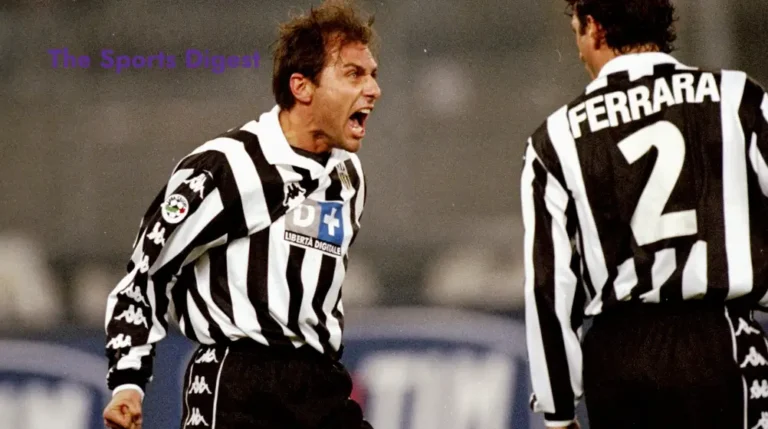Oleh Blokhin: Ukraine’s Football Legend
In the history of Soviet football, few managed to carve their names in fans’ memories as deeply as Oleh Blokhin did. He was not just an extraordinary star, but a symbol of a football era that witnessed the birth of geniuses behind a politically closed curtain. Despite all barriers, Blokhin rose to become one of the greatest to ever touch the ball—not only in the Soviet Union but across Europe.
Table of Contents
Oleh Blokhin: Beginnings – A Prodigy Since Childhood
Born in Kyiv in 1952, into a top athletic family, Blokhin’s mother was a champion in athletics, so it was natural for the son to inherit exceptional sports genes. From a young age, he showed incredible speed and physical power that attracted football scouts all over Ukraine.
While he could have followed his mother’s path to become a professional runner, he chose the green pitch instead. At just seventeen, he joined Dynamo Kyiv, beginning a new chapter in Ukrainian football history.
Dynamo Kyiv and Lobanovsky: Genius Within a Strict System
Blokhin became one of Dynamo Kyiv’s brightest stars, a team that under the legendary coach Valeriy Lobanovsky transformed into a footballing machine. Lobanovsky was known for his strict system and demanded players not to think: “I think, you just execute.” But Oleh Blokhin was an exception—he was not just a performer but a creative thinker on the field.
He combined tactical intelligence, blazing speed, and an exceptional ability to finish attacks, becoming the team’s most important player and the backbone of every triumph.
Oleh Blokhin: 1975 Season – A Moment of European Glory
The year 1975 marked the peak of Blokhin’s brilliance as he led Dynamo Kyiv to win the European Cup Winners’ Cup with stunning performances at every stage. This success was crowned by receiving the Ballon d’Or as Europe’s best player, making him the first from Ukraine and behind the Iron Curtain to earn this honor.
But the most memorable moment came later in the European Super Cup against the legendary Bayern Munich, which included stars like Franz Beckenbauer, Gerd Müller, and Karl-Heinz Rummenigge. In the first leg in Munich, Oleh Blokhin amazed the world with an unforgettable solo goal. He sprinted from midfield, dribbled past defenders with speed and skill, toyed with Beckenbauer, and calmly placed the ball past Sepp Maier.
That goal was a clear declaration to the world that a super talent was shining in Kyiv—even if he was not allowed to play professionally abroad yet.
Oleh Blokhin: Countless Record-Breaking Achievements
Oleh Blokhin was more than a scorer; he was a record-breaking machine. To this day, his name decorates historic records:
- All-time top scorer for Dynamo Kyiv with 266 goals.
- Highest scorer in Soviet League history.
- Top scorer for the Soviet national team.
- Most capped player for the Soviet Union (112 matches).
- Most league titles in the Soviet Union (8 times).
All these achievements came in a closed sporting environment that did not allow foreign transfers nor international media exposure, making them even more valuable and distinctive.
Attempts to Turn Professional and Closed Doors
Despite his huge talent, Blokhin hit a political wall that prevented Soviet stars from turning professional in Western Europe before age twenty-nine. Although Real Madrid tried to sign him multiple times, the decision always lay with the authorities.
In 1981, the dream almost came true after advanced negotiations with Real Madrid, including a tempting offer that involved a coaching role after his playing career. But at the last moment, the state intervened and refused to let him go, especially with the 1982 World Cup qualifiers approaching.
The Final Stop: A Modest Spell in Austria
At the end of his career, after passing 36 years old, he finally managed to play abroad, but the destination was not worthy of his talent. He joined the newly promoted First Division Austrian club Vorwärts Steyr. The team was not competing for titles, but it gave him the chance to play outside his homeland for the first time, albeit late.
Despite the modest level, Oleh Blokhin showed glimpses of his past brilliance, proving that true talent never fades even at an advanced age.
International Career: A Victim of Political Reality
Although he appeared in over 100 games for the Soviet national team, Oleh Blokhin never had a real chance to shine internationally. His team qualified for only two major tournaments during his career: the 1982 and 1986 World Cups, exiting early in both.
The lack of political and sporting support, plus the Soviet Union’s media isolation, deprived him of deserved international glory. Had he been born in another country or era, he might have become a global legend like Pelé or Maradona.
After Retirement: From Player to Coach
After retiring as a player, Blokhin moved into coaching, starting with small clubs in Greece before taking charge of Ukraine’s national team in 2003. His greatest achievement was leading Ukraine to the quarter-finals of the 2006 World Cup, their first participation since independence.
During this time, he proved that his football intelligence extended beyond the pitch to the bench, handling the realities of modern Ukrainian football with flexibility and efficiency.
A Lasting Legacy in Ukrainian Football Memory
Oleh Blokhin remains a unique figure in football history, not only for his achievements but because he represents a player who defied political constraints and harsh restrictions, proving that true talent asserts itself regardless of circumstances.
He is a symbol for future generations in Ukraine, a model of loyalty, dedication, and discipline—qualities that earned him deep respect from fans even decades after retirement.
Conclusion: A Legend from a Closed Era
Oleh Blokhin’s story may not shine as brightly as Pelé’s, Maradona’s, or Cruyff’s, but he was undeniably a talent no less. Politics barred him from reaching global stardom, but in the eyes of those who followed him, he remains one of the greatest footballers ever.
In a time when the world’s doors were closed to Eastern stars, Blokhin carved his path to glory and left his name forever etched in football history.
Have you ever read an article like this?
There are no reviews yet. Be the first one to write one.






